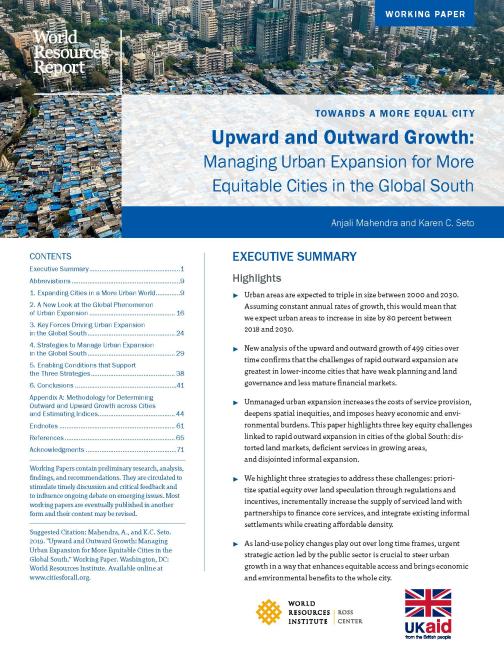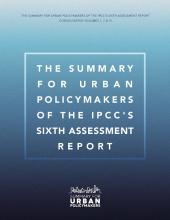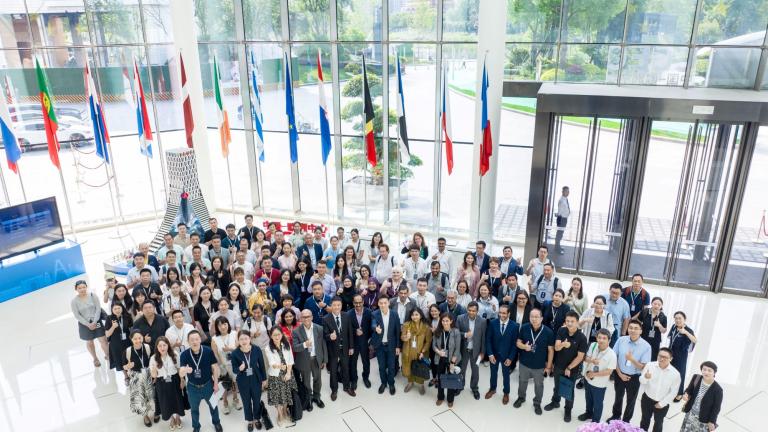Working Paper

Upward and Outward Growth
Managing Urban Expansion for More Equitable Cities in the Global South
This paper guides city officials to manage urban sprawl with strategic land-use policy action to build more productive and equitable cities.
Urban areas are expected to triple in size between 2000 and 2030. Unmanaged urban expansion increases the costs of service provision, deepens spatial inequities, and imposes heavy economic and environmental burdens.
This resource highlights strategies that cities can adopt to manage urban sprawl in a way that ensures more equal and productive cities, including: 1. Prioritizing spatial equity over land speculation through regulations and incentives; 2. Incrementally increasing the supply of serviced land with partnerships to finance core services; 3. Integrating existing informal settlements while creating affordable density. This paper was produced by WRI and provides executive summaries in Chinese, Portuguese and Spanish.
Learn more

The Summary for Urban Policymakers of the IPCC's Sixth Assessment Report
This publication by the Summary for Urban Policymakers (SUP) initiative synthesizes the latest findings from the IPCC Sixth Assessment Reports in partnership with cities and businesses across the globe.

UrbanShift Labs
Summarizing insights and lessons from eight of UrbanShift's Labs, this report offers a template for furthering geospatial analysis in cities.

Meet CityMetrics: An Open-Source, Interactive Tool for Analyzing Urban Risks and Opportunities
With CityMetrics, a new geospatial data platform developed by WRI, over 60 cities--including all 23 UrbanShift cities--can access in-depth data on urban risks and vulnerabilities.

Empowering Cities to Shape Climate Goals: Lessons from the UrbanShift China City Academy
On 1-3 July 2025, the Academy brought together over 120 participants from cities in China, India, Malaysia, Mongolia, and the Philippines, alongside national government representatives.
